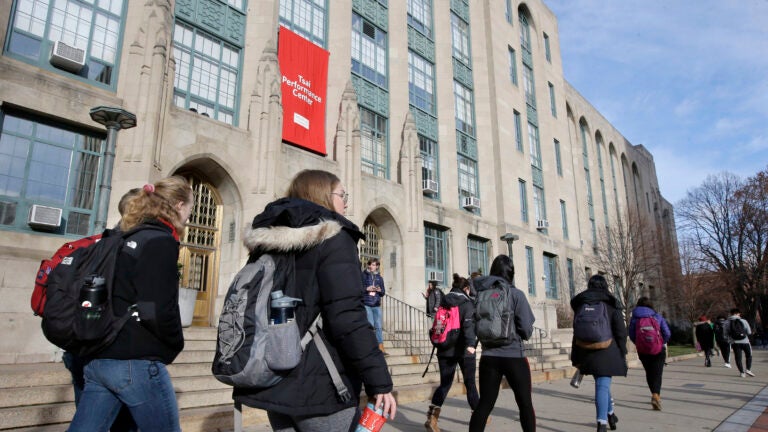Two more Boston colleges report declines in Black student enrollment in wake of SCOTUS decision
BU’s first-year Black student enrollment falls to 3%, Northeastern to 5%.
September 13, 2024

Another two Boston colleges reported declines in Black student enrollment in their incoming classes on Thursday, following a trend of decreasing diversity among first-year students.
Boston University says its population of Black first-year students dropped from 9% last year to 3%, while Northeastern University reported a decrease from almost 8% to just over 5%.
The universities attribute the decline to the Supreme Court’s June 2023 ruling striking down affirmative action in college admissions. The decision declared that race can no longer be a factor in admitting students and challenged higher education institutions to find new ways to achieve diverse student bodies.
The decline in enrolled undergraduate Black students at BU is “concerning and disappointing,” President Melissa Gilliam said to BU Today. She said the issue “will be a priority” for the university moving forward.
Gilliam said Boston University will set up a task force beyond the admissions team to create pipelines to attract a diverse student body by improving the financial aid program, ensuring students are comfortable in their environment once they get there, and looking at how the school connects and communicates with potential students.
“We understand what the law is, and we will, of course, comply with the law,” Gilliam, who took over as BU president on July 1, told BU Today.
Gilliam continued by saying the court ruling is “deeply concerning” and “diversity is a core value of this institution, and we have to learn and improve.”
DeMario Douglas expresses frustration, calls lack of touches ‘very challenging’DeMario Douglas expresses frustration, calls lack of touches ‘very challenging’
BU reports that its incoming class remains diverse, with 42% students of color, a slight decrease from 44%. Of those, 21% identify as Asian American, an increase from 18%, and 12% as Hispanic, down from 13%. The number of enrolled white students at BU remained flat at 29%.
BU’s numbers are preliminary, with final numbers coming in October.
Northeastern’s announcement states that nearly 50% of the first-year undergraduate students on the Boston campus identify as non-white. Among them are 5.1% identifying as Black, 5.3% as two or more races, 13.3% as Hispanic, 0.35% as Native American, and 25.2% as Asian American.
The school did not break out enrollment data on its white students.
“We continue to place tremendous value on the educational benefits of a diverse student body and seek to enroll students from a broad range of life experiences within the bounds of the law,” said Renata Nyul, Northeastern’s vice president of communications, in a statement.
As colleges and universities in New England begin to release demographic data for their first-year classes, many have shown a lower Black and Hispanic enrollment trend than in previous years.
Harvard University, a defendant in the 2023 affirmative action lawsuit, along with the Massachusetts Institute of Technology, Amherst College, and Brown University, reported enrolling fewer Black students than last year.
The only school breaking with the trend is the University of Massachusetts Amherst, which reported its most diverse incoming class ever.